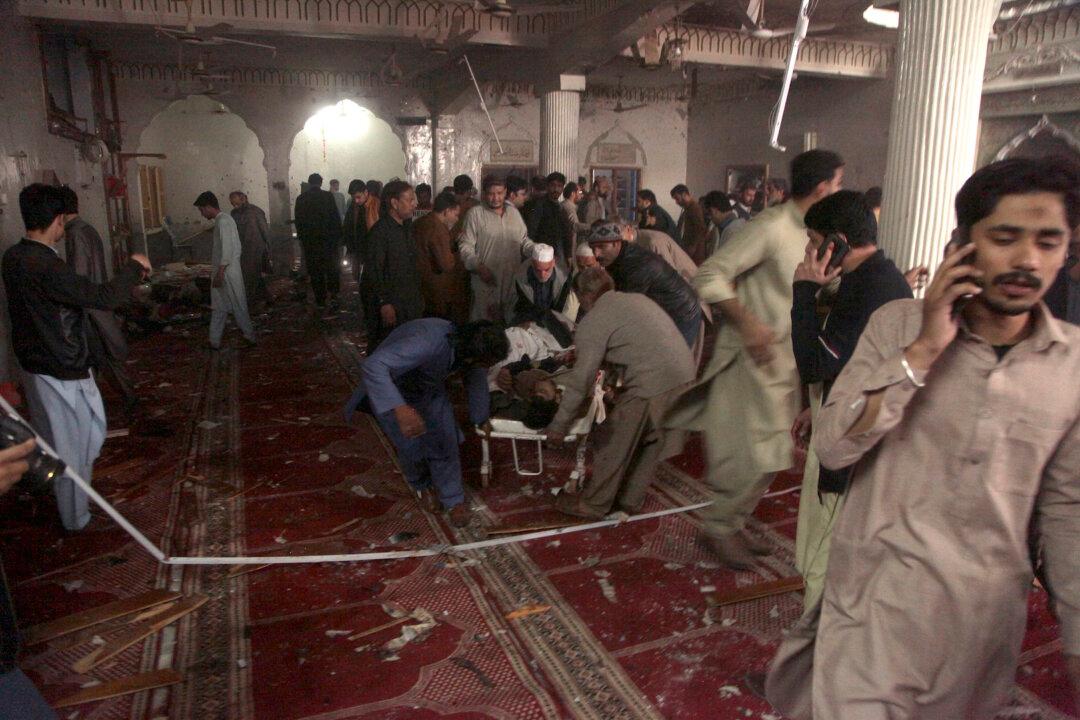PESHAWAR, Pakistan—Officials vowed Saturday to hunt down and arrest the masterminds behind a deadly mosque attack in Pakistan a day earlier claimed by an affiliate of the ISIS terrorist group. The assault killed 63 people and wounded nearly 200.
ISIS said in a statement the lone suicide bomber was from neighboring Afghanistan. He shot two police guarding the Shiite Muslim mosque in northwest Peshawar before entering inside and exploding his device, it said. The attack took place as worshipers knelt in Friday prayer. The ISIS affiliate, known as ISIS in Khorasan Province (ISIS-K), is headquartered in eastern Afghanistan.





